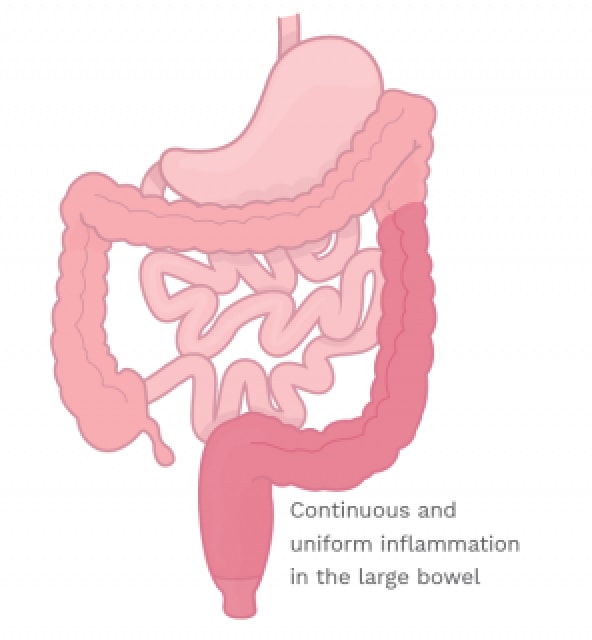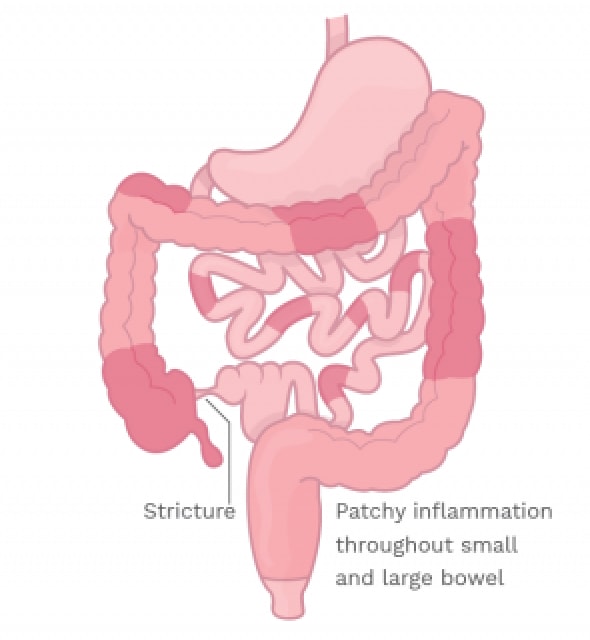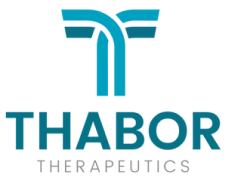Pathologies

We are committed to improve the care and the lives of patients suffering from mucosal inflammatory diseases. where AGR2 secretion is detected
Those diseases encompass common and rare, chronic and highly debilitating conditions such as:
- Inflammatory Bowel diseases (ulcerative colitis and Crohn’s disease) and other digestive tract inflammatory diseases (such as primary sclerosing cholangitis and chronic pancrreatitis).
- Pulmonary diseases (eg Idiopathic Pulmonary Fibrosis),
- Genitourinary tract diseases (eg endometriosis).


Thabor Therapeutics is committed to develop and market innovative treatments
Thabor Therapeutics is committed to develop and market innovative treatments to respond to the key unmet needs of mucosal inflammatory diseases, in particular IBD:
- Drugs with improved safety, devoided of risks associated to immunosuppression (cancer, infections).
- Drugs able to ensure more profound and sustained clinical remission (broader efficacy, lower treatment failures).
- Drugs suitable for tailored approach, being particularly beneficial to easily monitorable subgroups of patients.
What are Inflammatory bowel diseases?
IBD is a pool of diseases encompassing mainly two major types of diseases which are ulcerative colitis (UC) and Crohn disease (CD).
IBD results from a complex series of interactions between susceptibility genes, the environment, and the immune system1. The dysfunction associated with IBD is linked to intestinal mucosal inflammation, continuous epithelial impairment, and dysbiosis 2,3.
The relative involvement of those components in the onset of the disease is still under debate but it is clearer now that early dysfunction of the intestinal barrier may be the primary defect in patients suffering from IBD4,5.
IBD
That is why Thabor Therapeutics focused its research on this critical component.
Ulcerative Colitis
Ulcerative colitis (UC) is a disease that causes inflammation and ulcers in the lining of the rectum and colon. UC usually starts between the ages of 15 and 30.
The most common symptoms are a pain in the abdomen and blood in diarrhea and other symptoms include anemia, severe tiredness, weight loss, loss of appetite, bleeding from the rectum, sores on the skin, and joint pain.
Several types of drugs may help control UC, but there is still a need for better therapies to keep the disease in remission and improve patient outcomes.


Crohn’s disease
Crohn’s disease is a chronic inflammatory disease of the gastrointestinal tract, with increasing incidence worldwide. The disease can occur at any age, but Crohn’s disease is most often diagnosed in adolescents and adults between the ages of 20 and 30.
Crohn’s disease can affect any part of the GI tract from the mouth to the anus, but most commonly affects the end of the small bowel (ileum) and the beginning of the colon.
The most common symptoms are abdominal pain, chronic diarrhea, weight loss, and fatigue.
While not fully satisfactory, current therapeutic strategies aim for deep and long-lasting remission, with the goal of preventing complications, such as surgery, and blocking disease progression.

Scientific references
- Wallace, K. L. Immunopathology of inflammatory bowel disease. World J. Gastroenterol. 20, 6 (2014).
- Laukoetter, M. G., Nava, P. & Nusrat, A. Role of the intestinal barrier in inflammatory bowel disease. World J. Gastroenterol. 14, 401 (2008).
- Nalle, S. C. & Turner, J. R. Intestinal barrier loss as a critical pathogenic link between inflammatory bowel disease and graft-versus-host disease. Mucosal Immunol. 8, 720–730 (2015).
- Martel, J. et al. Gut barrier disruption and chronic disease. Trends Endocrinol. Metab. 33, 247–265 (2022).



